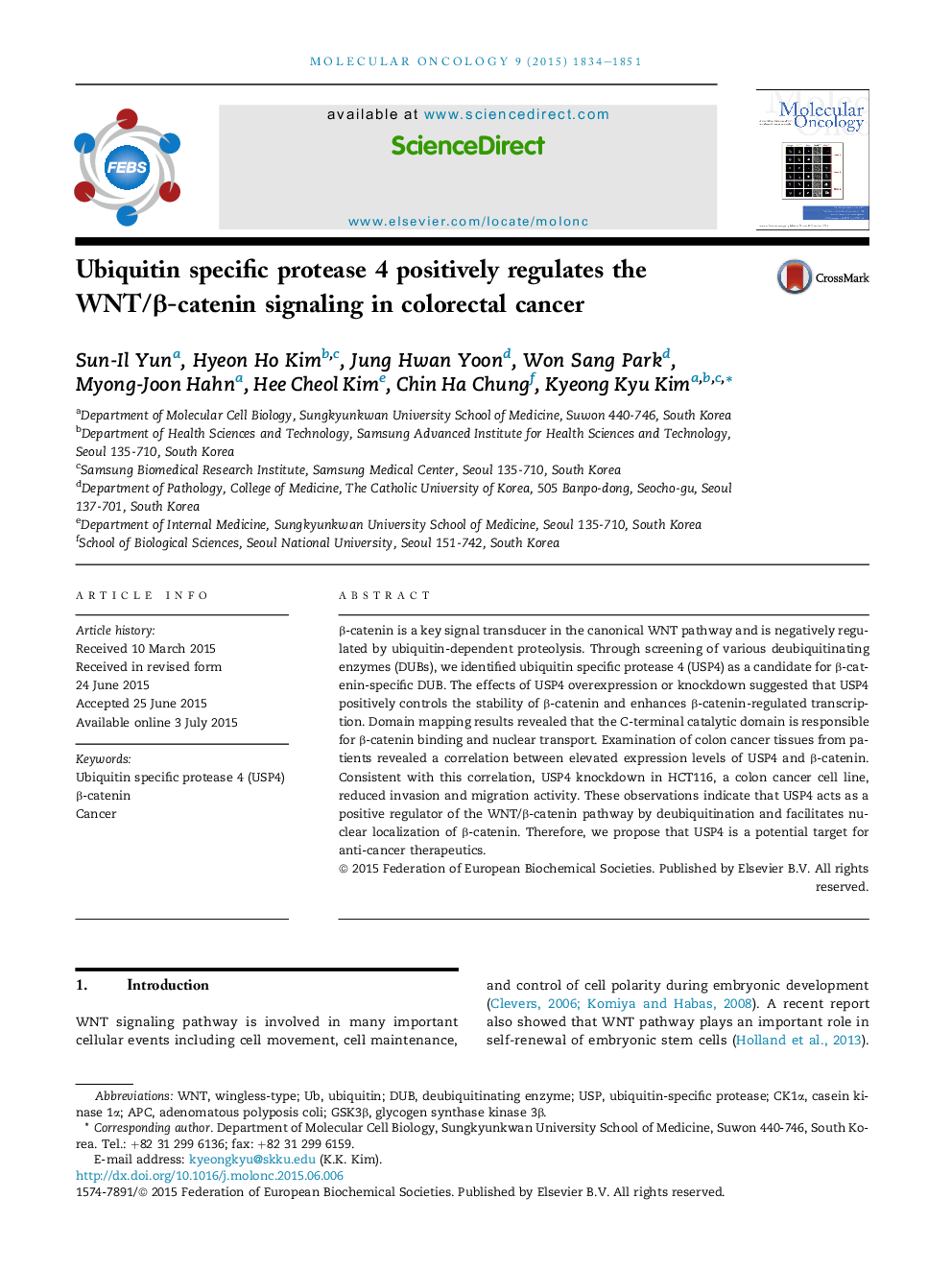| Article ID | Journal | Published Year | Pages | File Type |
|---|---|---|---|---|
| 2145602 | Molecular Oncology | 2015 | 18 Pages |
•Ubiquitin specific protease 4 (USP4) positively regulates WNT/β-catenin signaling.•USP4 deubiquitinates β-catenin and increases the stability of β-catenin.•USP4 level is correlated with β-catenin in colon cancer tissues.•USP4 is a potential target for anti-cancer treatments.
β-catenin is a key signal transducer in the canonical WNT pathway and is negatively regulated by ubiquitin-dependent proteolysis. Through screening of various deubiquitinating enzymes (DUBs), we identified ubiquitin specific protease 4 (USP4) as a candidate for β-catenin-specific DUB. The effects of USP4 overexpression or knockdown suggested that USP4 positively controls the stability of β-catenin and enhances β-catenin-regulated transcription. Domain mapping results revealed that the C-terminal catalytic domain is responsible for β-catenin binding and nuclear transport. Examination of colon cancer tissues from patients revealed a correlation between elevated expression levels of USP4 and β-catenin. Consistent with this correlation, USP4 knockdown in HCT116, a colon cancer cell line, reduced invasion and migration activity. These observations indicate that USP4 acts as a positive regulator of the WNT/β-catenin pathway by deubiquitination and facilitates nuclear localization of β-catenin. Therefore, we propose that USP4 is a potential target for anti-cancer therapeutics.
Graphical abstractFigure optionsDownload full-size imageDownload high-quality image (94 K)Download as PowerPoint slide
